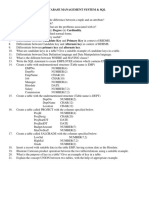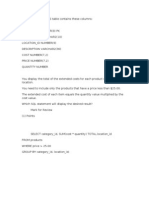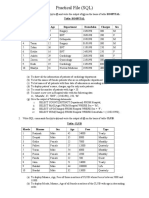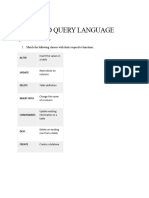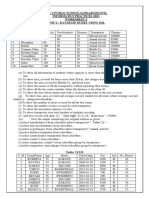0% found this document useful (0 votes)
8 views4 pagesExercise04 AggregateFunctions Assignment04 040825
The document contains a series of SQL query assignments focused on using aggregate functions to retrieve specific data from various tables. It includes tasks to find minimum and maximum values, average prices, and counts while applying conditions to filter results. Each query requires the use of specific aliases for the output columns.
Uploaded by
achyut.dsa.2023Copyright
© © All Rights Reserved
We take content rights seriously. If you suspect this is your content, claim it here.
Available Formats
Download as PDF, TXT or read online on Scribd
0% found this document useful (0 votes)
8 views4 pagesExercise04 AggregateFunctions Assignment04 040825
The document contains a series of SQL query assignments focused on using aggregate functions to retrieve specific data from various tables. It includes tasks to find minimum and maximum values, average prices, and counts while applying conditions to filter results. Each query requires the use of specific aliases for the output columns.
Uploaded by
achyut.dsa.2023Copyright
© © All Rights Reserved
We take content rights seriously. If you suspect this is your content, claim it here.
Available Formats
Download as PDF, TXT or read online on Scribd
/ 4
